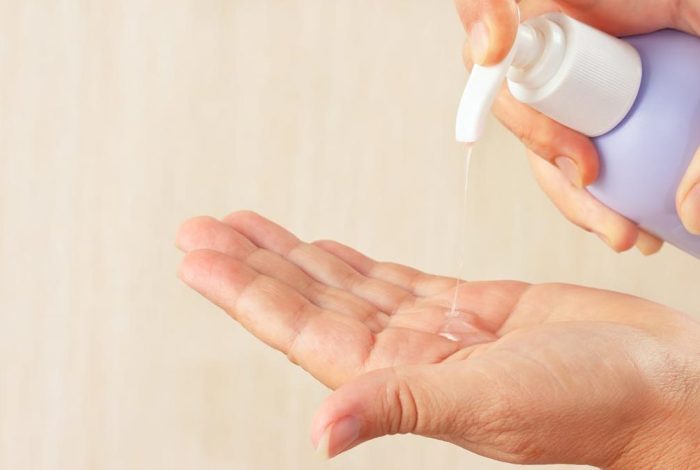Tu las manos con jabon, or washing your hands with soap, is a simple yet essential hygiene practice that plays a crucial role in preventing the spread of germs and maintaining good health. This article delves into the importance, methods, benefits, and appropriate times for handwashing with soap, providing valuable insights and guidance for readers.
Washing your hands with soap effectively removes germs and bacteria, reducing the risk of infections and illnesses. It is a fundamental step in maintaining personal hygiene and safeguarding the health of both individuals and communities.
Introduction
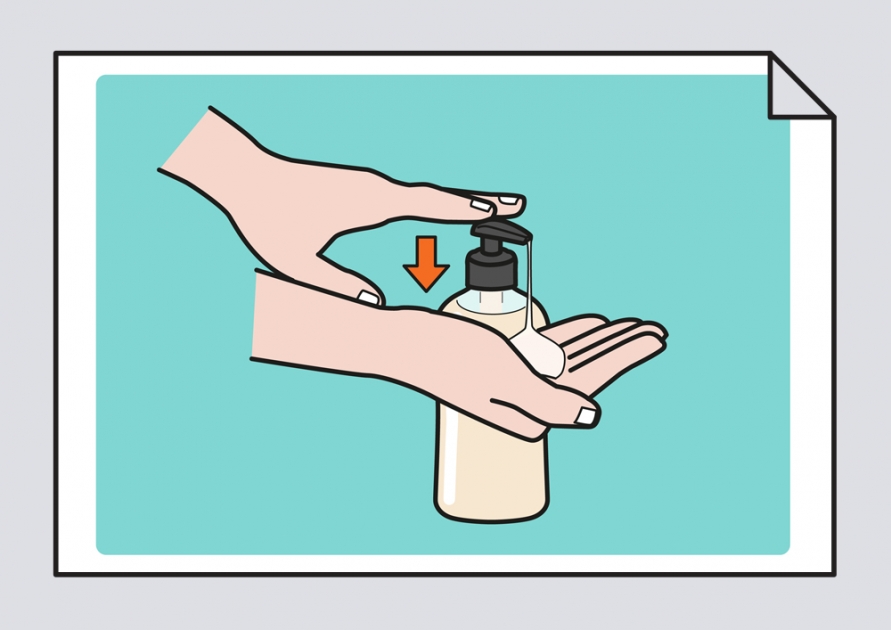
Washing your hands with soap is one of the most important things you can do to prevent the spread of germs. Germs can be spread through contact with contaminated surfaces or objects, or through contact with people who are sick.
Handwashing with soap removes germs from your hands and helps to prevent them from spreading to others.
There are many different types of soap available, but not all soaps are equally effective against germs. Antibacterial soap is more effective at killing germs than regular soap, but it is also more expensive. If you are using regular soap, be sure to wash your hands for at least 20 seconds to ensure that all of the germs are removed.
Tu las manos con jabón antes de tocar a tu bebé. Nancy va a esas flores , que son muy bonitas. Recuerda lavarte las manos con jabón después de tocarlas.
Effectiveness of Handwashing with Soap
Studies have shown that handwashing with soap can reduce the spread of germs by up to 50%. One study found that people who washed their hands with soap after using the bathroom were 50% less likely to get sick than people who did not wash their hands.
Another study found that handwashing with soap was effective in reducing the spread of the flu virus. People who washed their hands with soap after coming into contact with someone who was sick with the flu were 25% less likely to get sick than people who did not wash their hands.
Tu las manos con jabón antes de comer es esencial para prevenir enfermedades. A veces, sin embargo, incluso después de lavarse las manos, los gérmenes persisten. Para descifrar este enigma, podemos recurrir a o b j e c t unscramble , una herramienta que nos ayuda a descifrar secuencias de letras ocultas.
Volviendo a nuestro tema original, lavarse las manos con jabón sigue siendo la mejor defensa contra las bacterias y virus dañinos.
Methods of Handwashing
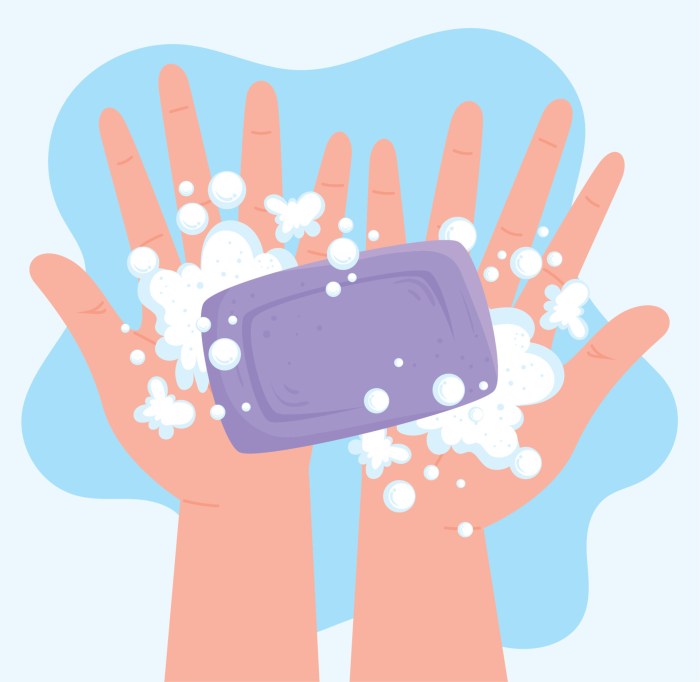
Maintaining proper hand hygiene is crucial for preventing the spread of germs and diseases. Washing hands with soap and water is one of the most effective ways to remove dirt, bacteria, and viruses from the hands.
Tu las manos con jabon before reading this, porque the climax of Of Mice and Men is truly heartbreaking. Steinbeck’s portrayal of the friendship between George and Lennie is so touching, and the ending is both tragic and inevitable. After reading, tu las manos con jabon again, porque the story will stay with you long after you finish it.
To wash your hands properly, follow these steps:
- Wet your hands with clean, running water (warm or cold), turn off the tap, and apply soap.
- Lather the soap by rubbing your hands together vigorously for at least 20 seconds. Make sure to lather the backs of your hands, between your fingers, and under your nails.
- Rinse your hands thoroughly with clean, running water.
- Dry your hands using a clean towel or air dry them.
Tips for effective handwashing:
- Use a soap that lathers well and contains antibacterial agents.
- Wash your hands for at least 20 seconds, especially after using the bathroom, before eating, and after handling raw meat or poultry.
- If soap and water are not available, use an alcohol-based hand sanitizer with at least 60% alcohol.
Benefits of Handwashing with Soap
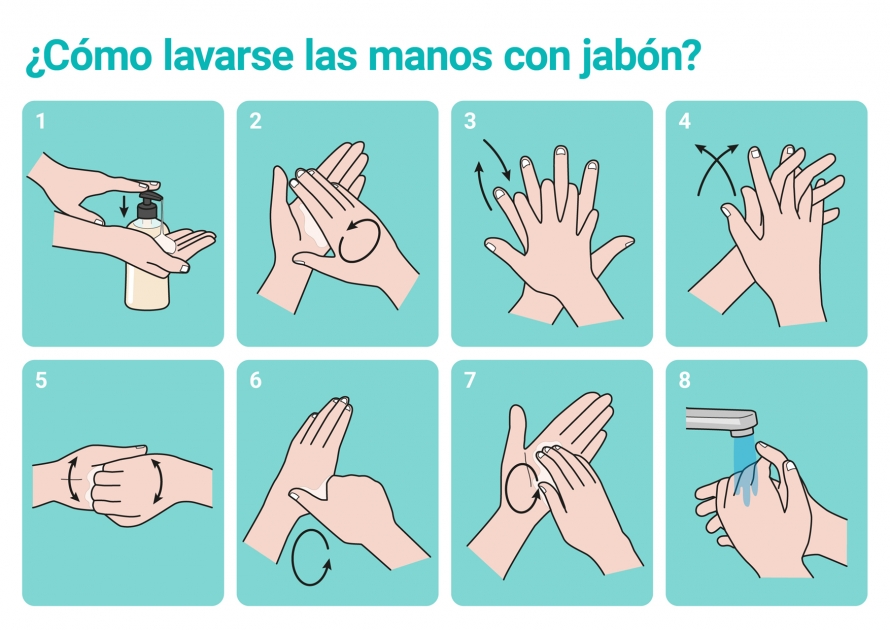
Handwashing with soap is an essential practice for preventing the spread of diseases. Soap plays a crucial role in removing germs and bacteria from the hands, thereby reducing the risk of infection.
Prevention of Common Illnesses
Regular handwashing with soap has been proven effective in preventing a wide range of common illnesses, including:
- Diarrhea
- Respiratory infections (e.g., colds, flu)
- Skin infections
- Eye infections
- Foodborne illnesses (e.g., salmonella, E. coli)
By eliminating germs and bacteria from the hands, handwashing with soap helps prevent these illnesses from spreading through contact with contaminated surfaces or objects.
When to Wash Hands: Tu Las Manos Con Jabon
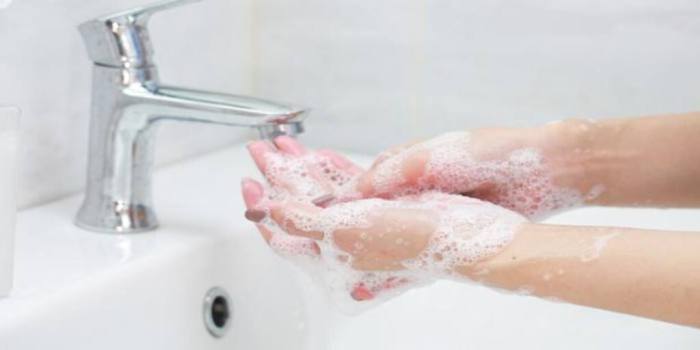
Washing hands with soap and water is an essential step in preventing the spread of germs and illnesses. It is important to wash your hands regularly throughout the day, especially during certain situations when you are more likely to come into contact with germs.
Important Situations to Wash Hands, Tu las manos con jabon
- After using the bathroom
- Before eating
- After coming into contact with sick individuals
- After handling raw meat or poultry
- After gardening or working in the yard
- After changing a diaper
- After coughing or sneezing into your hands
- After touching surfaces that may be contaminated with germs, such as doorknobs, elevator buttons, or countertops
Washing your hands with soap and water for at least 20 seconds can help to remove germs and prevent the spread of illness.
Conclusion
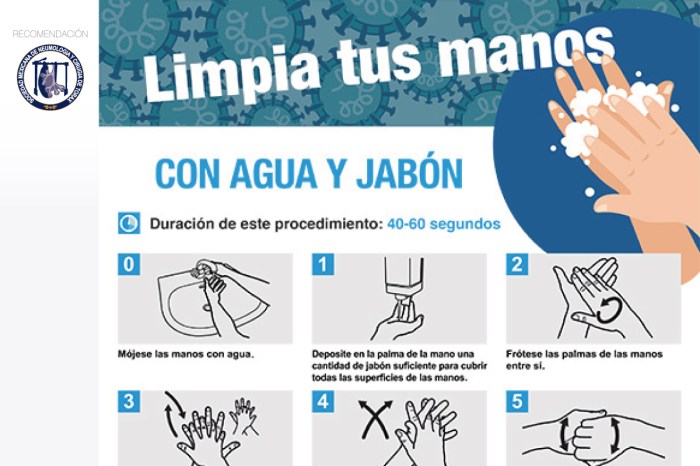
In summary, handwashing with soap is an effective and simple way to prevent the spread of germs and protect our health. By following the proper steps and incorporating it into our daily routine, we can significantly reduce the risk of illness and promote a healthier environment for ourselves and others.
Remember, handwashing with soap is not just a personal hygiene practice but a collective responsibility. By making it a habit, we contribute to a healthier community and safeguard the well-being of everyone around us.
Let us all make a commitment to wash our hands with soap regularly, especially at critical times. Together, we can create a healthier future for all.
Answers to Common Questions
How often should I wash my hands with soap?
It is recommended to wash your hands with soap for at least 20 seconds, multiple times throughout the day, especially after using the bathroom, before eating, and after coming into contact with sick individuals.
What type of soap is most effective for handwashing?
Regular soap is sufficient for everyday handwashing. Antibacterial soap is not necessarily more effective and may contribute to the development of antibiotic resistance.
Can hand sanitizer replace handwashing with soap?
While hand sanitizer can be useful in certain situations, it is not a substitute for handwashing with soap and water. Hand sanitizer should only be used when soap and water are not readily available.
